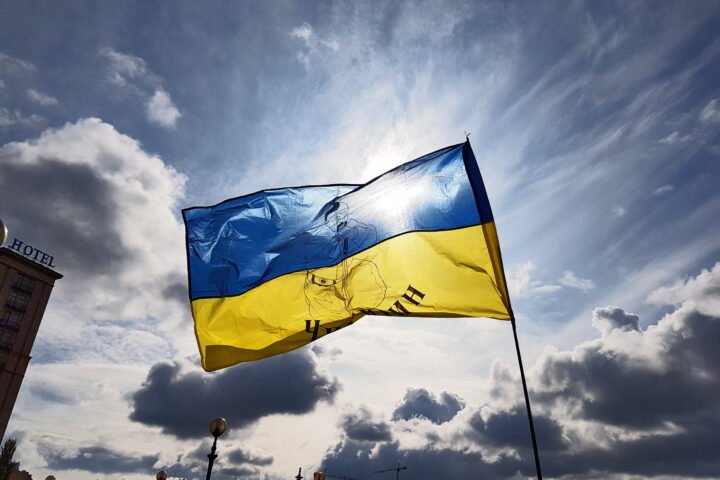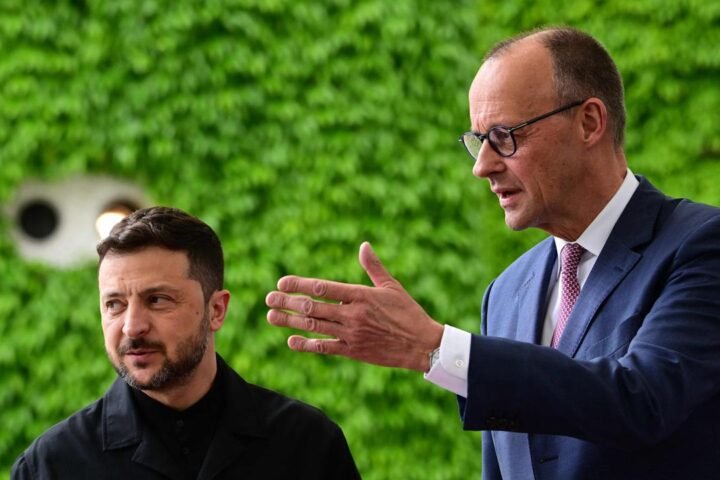German international footballer Antonio Rüdiger is pressing defamation charges against a journalist who accused him of supporting Islamic extremism. Experts differ in their interpretations of the gesture.
Germany and Real Madrid defender Antonio Rüdiger and the German Football Association (DFB) have launched legal proceedings against a former newspaper editor who accused the player of making a gesture of support for Islamic extremism in a Ramadan-related social media post.
On March 11, at the start of the Muslim month for fasting, prayer, community and reflection, Rüdiger posted an image of himself kneeling on a prayer map in a white robe with his right index finger pointing upwards, along with the caption: “Ramadan Mubarak to all Muslims around the world. May the almighty accept our fasting and prayers.”
Two weeks later, when Rüdiger was named in the starting line-up for Germany’s 2-0 win against France on March 24, journalist Julian Reichelt, the former editor of the German tabloid newspaper BILD, took to the social media platform X, formerly Twitter, claiming that Rüdiger’s raised finger constituted an Islamist gesture.
“Islamism in the German starting eleven this evening,” he wrote, following it up with a series of posts on the gesture and its supposedly extremist connotations.
Rüdiger and the DFB took action on Monday, the 31-year-old defender filing a complaint to Berlin prosecutors relating to defamation, inciting offense and incitement to hatred, and the DFB reporting the case to the Central Unit for the Suppression of Internet Crime (ZIT) in Frankfurt.

Was Rüdiger’s raised finger an extremist gesture?
Reichelt, who was fired by BILD in October 2021 amid allegations of bullying and abuse of female staff at the tabloid, doubled down, insisting: “This gesture has been completely co-opted by terrorists in the last two decades. It has unarguably become the gesture of ISIS [the so-called Islamic State, the ed.] and Islamist murderers around the world, of people who have also murdered in Berlin, and evil and suffering all over the world.”
He said that Germany’s Federal Office for the Protection of the Constitution (Bundesverfassungsschutz or BfV) considers the gesture a symbol of Islamist radicalization and that the German interior minister, Nancy Faeser, has in the past called it unacceptable.
“Anyone who poses so publicly is intentionally displaying a gesture of fanaticism and not an innocent, spiritual gesture,” he claimed.
Rüdiger, who also featured in Germany’s game against the Netherlands on Tuesday night, has yet to comment, but the German interior ministry told the German dpa news agency on Tuesday: “The so-called ‘tawhid’ finger is considered a symbol of the unity and uniqueness of God in Islam. The gesture is common among Muslims all over the world.”
“This applies regardless of the fact that Islamist groups are appropriating this symbol and misusing it for their own purposes,” the ministry added.
Rüdiger gesture ‘definitely not extremist’
Politicians, experts and commentators have expressed varying interpretations. German lawmaker and Green Party spokeswoman Lamya Kaddor, herself an Islamic scholar, said: “This gesture belongs to Islamic practice. For instance, the right index finger can be raised in ritual prayer and also during confession of faith. In any case, it is definitely not an expression of Islamist ideas.”
The award-winning German-Israeli-Arab extremism expert Ahmad Mansour told the portal t-online: “The tawhid finger is a deeply religious gesture, the roots of which have absolutely nothing to do with extremism. But we live in a time in which images play a much bigger role than before. IS terrorists have been using this gesture for many years, making it at executions and beheadings.
“Antonio Rüdiger can’t do anything about that … but I would have expected some reflection on his part as to how it would be interpreted on social media. For many young people, this religion that they share with him is an important part of their identity … but this image doesn’t distance itself from Islamism.”
Previous Germany controversies
It’s not the first time that Rüdiger or the DFB have been involved in controversies related to extreme interpretations of Islam.
In November 2020, Rüdiger apologized for “liking” an Instagram post in which Russian UFC champion Khabib Nurmagomedov had accused French President Emmanuel Macron of “insulting more than 1.5 billion devout Muslims” after condemning “Islamist terror attacks.” Rüdiger, then playing for Chelsea, removed the “like” and said he hadn’t understood the post, since it was written in Russian.
The post was also “liked” by former Germany international Mesut Özil, who quit the national team in 2018 amid the fallout from a controversial photograph with Turkish President Recep Tayyip Erdogan.
Source: Dw








